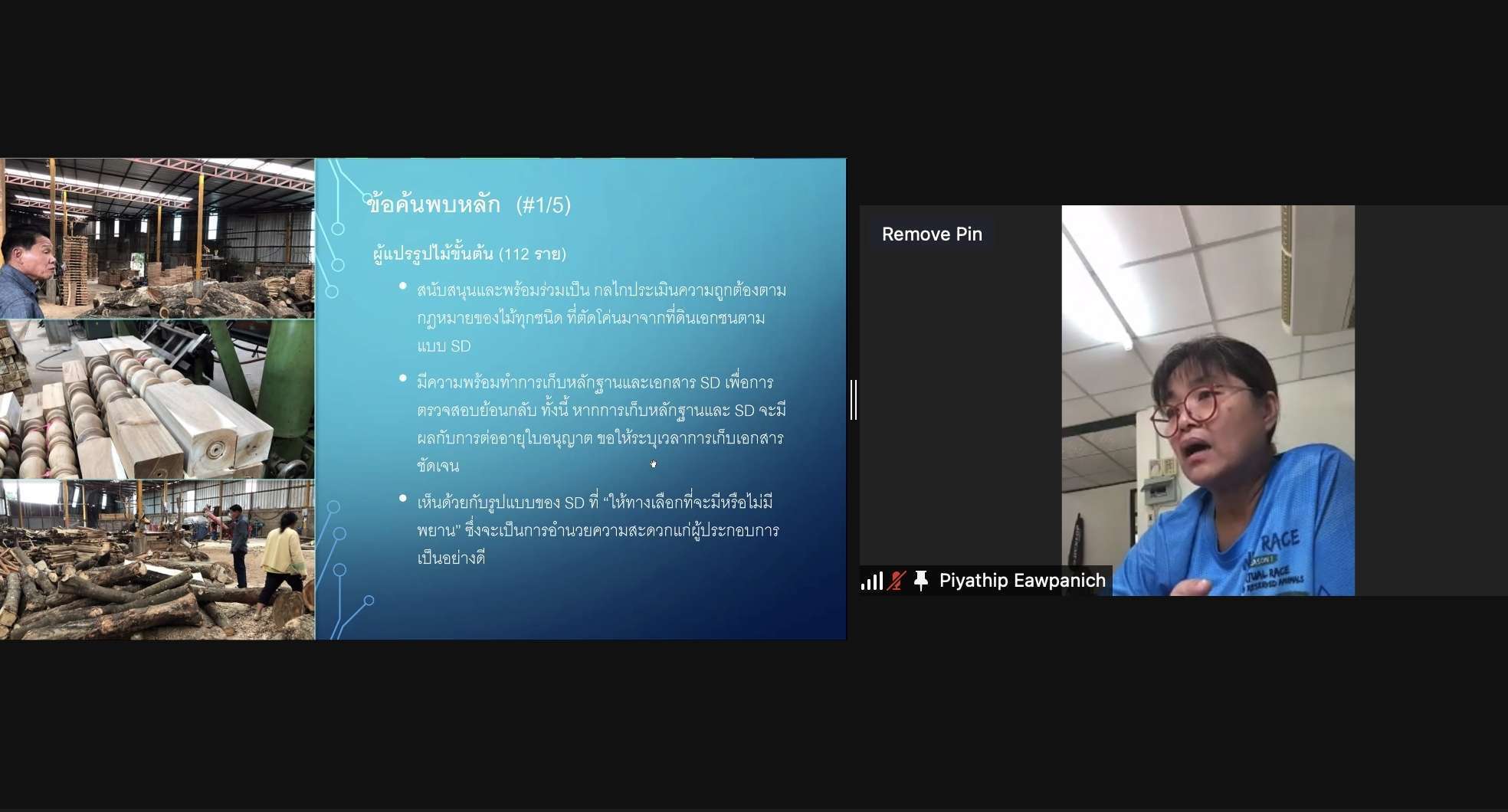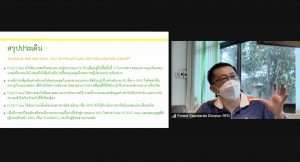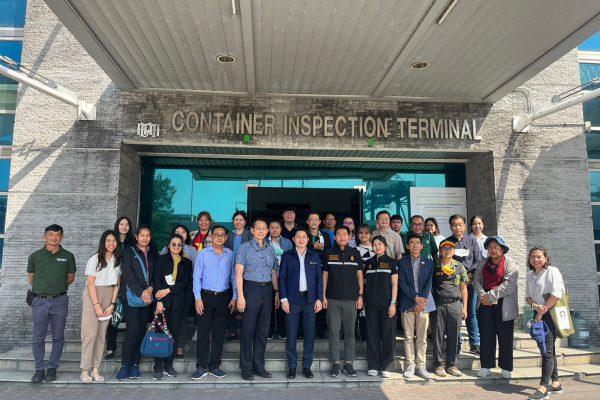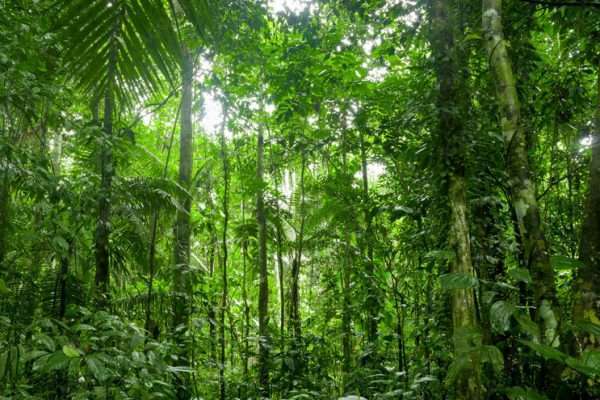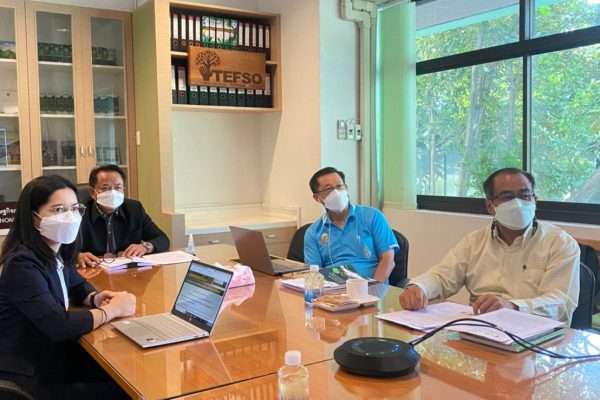20 Aug. 2021 – The 8th FLEGT VPA ad-hoc working group was held to:
- review the findings of the study on primary mills’ operation to ensure the legality of incoming timbers;
- discuss publicity and capacity building activities to promote self-declaration on private land;
- discuss the self-declaration guideline for reclaimed timber.
The study on primary mills has shown that almost all mills in Thailand have a risk management system to prevent incoming illegal timbers. Documentation is part of the required standard practice. Additional measures such as witness, onsite auditing, or third-party verification would be conducted proportionately to the identified risks. Though some small mills still lag behind in their supply chain control due to insufficient resources and information. To ensure mills of all sizes can effectively prevent the incoming illegal timber, the FLEGT VPA ad-hoc working group has drafted the guideline for mills’ timber verification and risk mitigation. When asked about self-declaration, all mills welcomed this initiative and recommended that there should be a centralized electronic system keeping referenced numbers of the self-declaration document so that the timber information is traceable. The Royal Forest Department will discuss this recommendation with the Asian Institute of Technologies, its partnered organization in the THA-TLAS system development project.
The self-declaration for timber on private land guideline drafted by the FLEGT VPA ad-hoc working group will be introduced this September. To support the implementation, the Federation of Thai Industries will assist the Royal Forest Department in the publicity activities ensuring that the public and relevant state officials have a correct understanding of the self-declaration, the legal basis, and the rights of timber growers operating on private land.
In the meeting, the ad-hoc working group agreed with the overall structure of the self-declaration for reclaimed timber drafted by the sub-working group led by the Reclaimed Timber Association. The self-declaration will fulfill the gap in the current supply chain control which does not regulate the reclaimed timber transport within the province. As a next step, the Reclaimed Timber Association will field test the self-declaration to improve the draft further.

